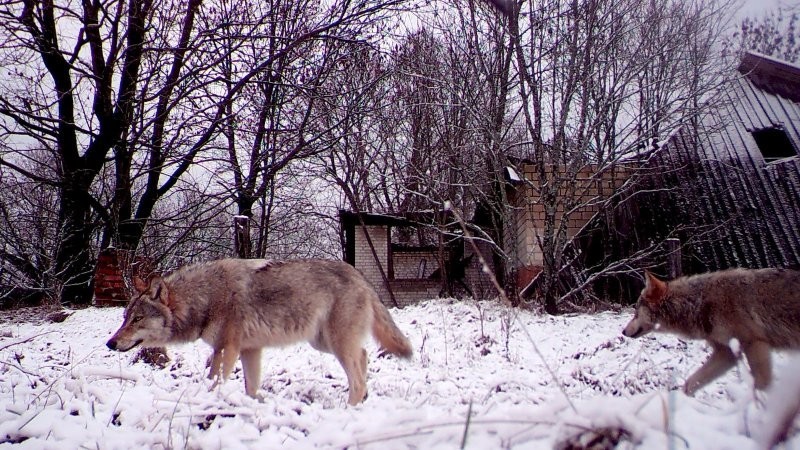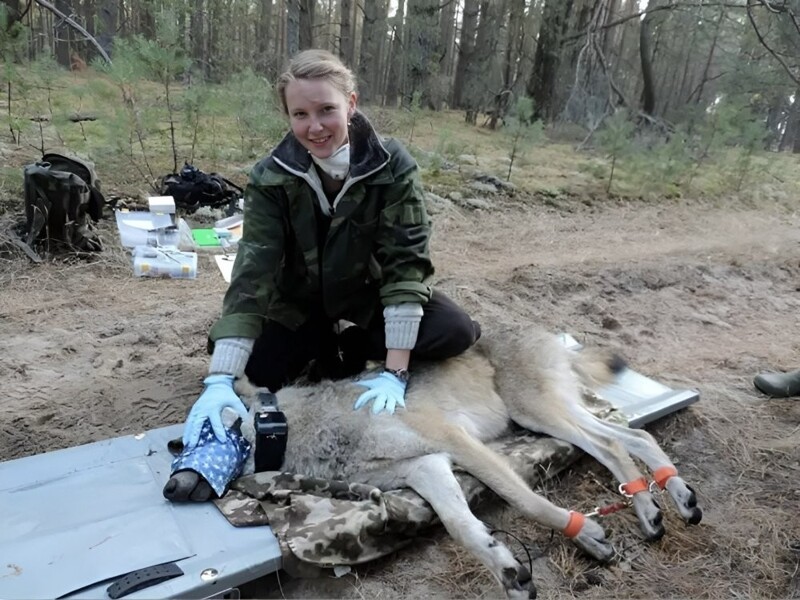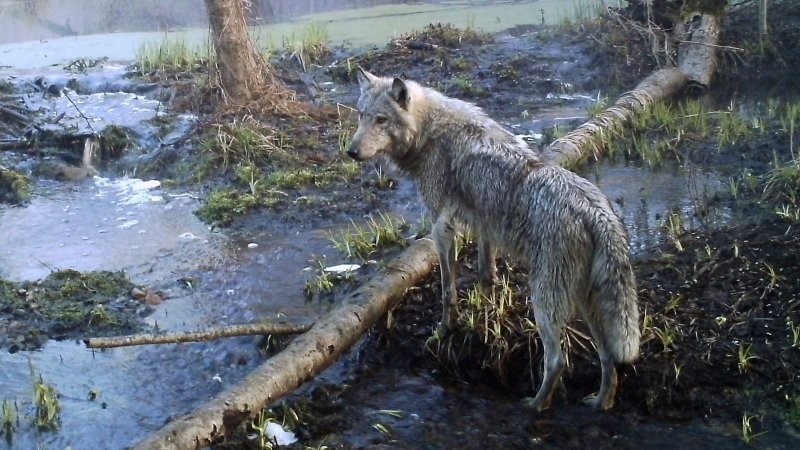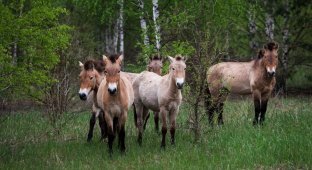Mutated wolves from Chernobyl are immune to cancer (3 photos)
Biologists from Princeton University have discovered an interesting feature in animals living in the exclusion zone of the Chernobyl nuclear power plant. 
In 1986, a nuclear reactor exploded at the Chernobyl power plant, radiation made the area completely unnatural for life, but a few years after the tragedy, wild animals such as wolves and horses returned. And they have been living there happily for more than 35 years.
Evolutionary biologists and ecotoxicologists from Shane Campbell-Staton's laboratory at Princeton University became interested in this phenomenon and conducted a series of studies to find out how Chernobyl wolves survived despite generations of exposure to radioactive particles. 
In 2014, a group of researchers visited the contaminated city and managed to put collars with trackers and radiation dosimeters on several wolves. These collars helped the research team pinpoint the location of the wolves and the level of radiation they were exposed to.
Researchers found that wolves are exposed to more than 11.28 millirems of radiation every day, which is six times the legal safety limit for humans. 
After tests were taken from the animals, it was found that the wolves' immune system had undergone significant changes over several generations and became similar to the immune system of cancer patients undergoing radiation therapy. It was possible to identify certain changes in genes that appear to be resistant to an increased risk of developing cancer.
Similar effects were seen in wild dogs living in the infected area.
Now researchers are studying how similar gene mutations in people may increase the chances of surviving cancer.























